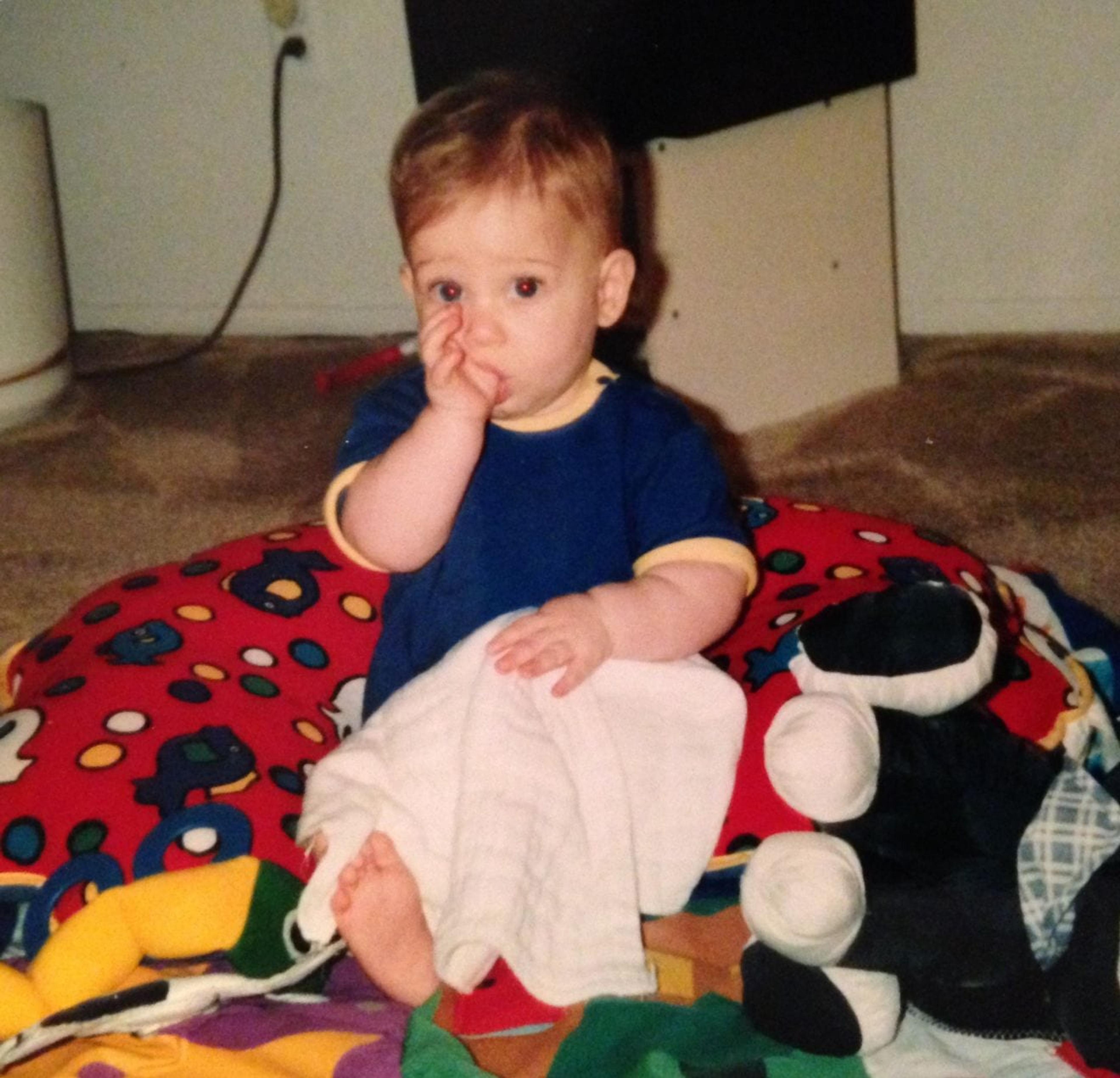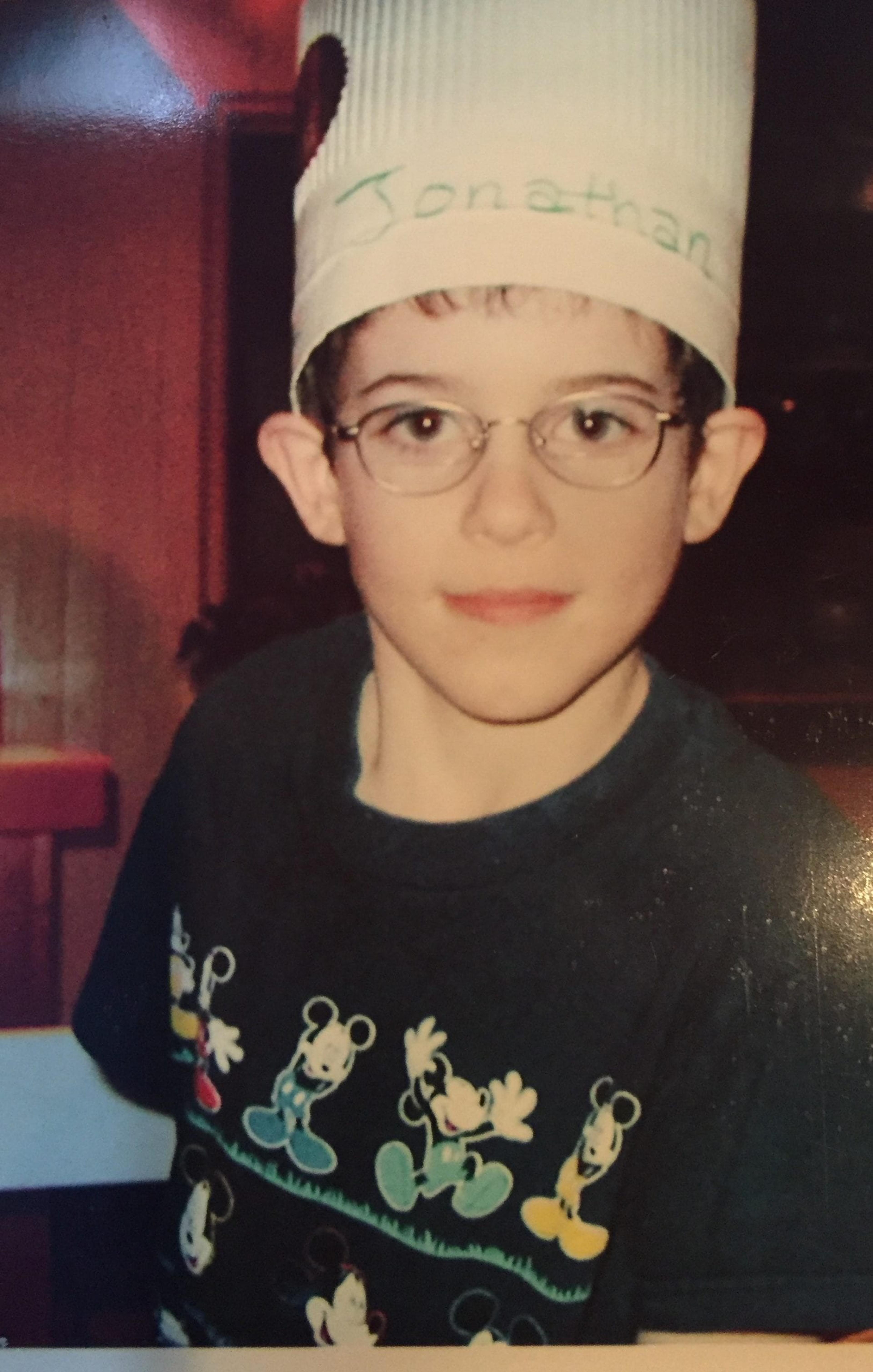Autism Awareness Month: Jonathan’s Story

Debbie Reinheimer
| 4 min read

We first noticed Jonathan’s incredible power of concentration when he was about 11 months old. He would sit on the floor, flipping the cardboard pages of his picture books one after the other and tuning out everything around him. It was as if his brain was a computer, and he was inputting information. We thought he was brilliant! And he is.
We didn’t know then that he was exhibiting a sign of autism.

Jonathan at age 1
As he grew, we noticed other things. His language sounded a little robotic. He flapped his hands when he got excited. And on play dates, he seemed to play alongside his friends, without really interacting with them.
When Jonathan was almost three, he received a comprehensive medical, neurodevelopmental, psycho-social evaluation. That’s when we were introduced to the term “Autism Spectrum Disorder,” and we entered a new world of therapies, support groups, Individualized Education Programs and never-ending conversations with people to advocate for our son.
Back then, we didn’t have Applied Behavior Analysis, a medically recognized, intensive program that works to modify behavior. But Jonathan did have years of speech and language therapy. And he continues with psychotherapy, medication management, social skills groups and other efforts.

Jonathan at age 8
Our family’s journey through the world of autism has taught us many things and introduced us to people and experiences we would not have otherwise encountered. As with any journey, there are positives and negatives, highs and lows. But the one challenge that has remained constant is the one of understanding.
Helping Jonathan to understand appropriate social behaviors has been difficult. Helping the rest of the world understand Jon’s social behaviors is herculean.
The autism brain works differently. Those with autism are doing the best they can to behave in a world that often doesn’t make sense to them. Imagine if you lived your whole life as if you were a visitor in a foreign land, constantly trying to understand the language and customs. But often, people assume the behaviors or mannerisms of autism are just strange or rude.
Like when he had a meltdown in the Target checkout line and my husband, Steve, had to carry a wailing and flailing Jon out of the store. Do I take the time to explain to the other patrons – many who are staring disapprovingly – that his autism makes it hard for him to express his frustration or anxiety until it’s too much and he melts down?
Or when he was on his fourth trip to the school principal’s office in a month, for saying something totally inappropriate to a teacher. How could we help the teachers recognize when Jon is getting agitated, so they could move him to a quiet spot before he mouths off?

A recent photo of Jonathan
Or now, as a young adult, how do we help his colleagues and managers at work understand that sometimes he doesn’t do what he’s told because he truly didn’t understand what he was told to do. And he was too anxious to ask for clarification.
Sometimes, it’s even a challenge to get friends and family members to understand Jon’s quirky behaviors and language. Sometimes, the very people you expect to have his back are the ones that make fun of him behind it.
The Centers for Disease Control and Prevention estimates that 1 in 44 children is diagnosed with Autism Spectrum Disorder. The “spectrum” of this disorder means there are very high functioning and very low functioning people with autism, and everything in between too.
The saying goes, “If you know one person with autism, you know one person with autism.” Each person on the spectrum is affected differently. But we press on, and we continue to advocate and educate in hopes that more people will understand – and accept – those with autism.
That’s the premise behind Autism Awareness Month every April.
That’s why I’m sharing our story.
Jonathan has made great progress over the years. He has conquered many of the things people said he couldn’t or would never be able to do. He is funny, creative, loyal and smart. Most of the time, he is happy. Jon is slowly learning how to manage his behavior. He tries to have “regular” conversations with people.
It breaks my heart when he tells me that he wishes he didn’t have autism. He usually says that at the end of a difficult day. Or after he’s had a meltdown. He recognizes that his autism makes it difficult for him to understand others. Every day is an effort for him.
Every day that he leaves our house to go out into the world, I worry that someone will misunderstand him, or take advantage of him, or take offense to something he says because he says it in a quirky way.
I want people to appreciate him for who he is. I want people to see his beautiful soul. But I will settle for more understanding.
If you liked this post, you might also enjoy:
- Understanding Autism in Children
- Inclusion at Play: GR Children’s Museum Helps All Families Feel Welcome
- The Science Behind Weighted Blankets
Main image photo credit: Contributed





